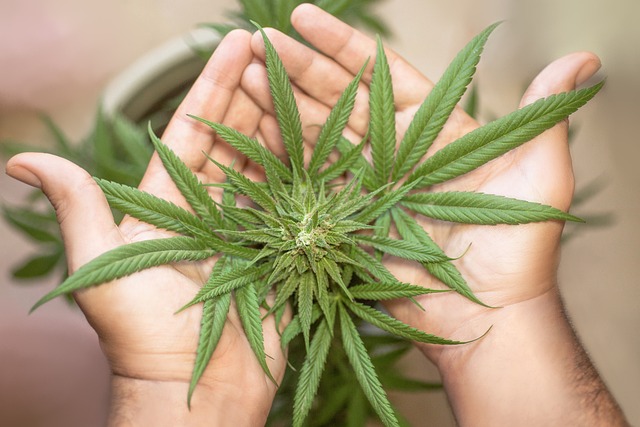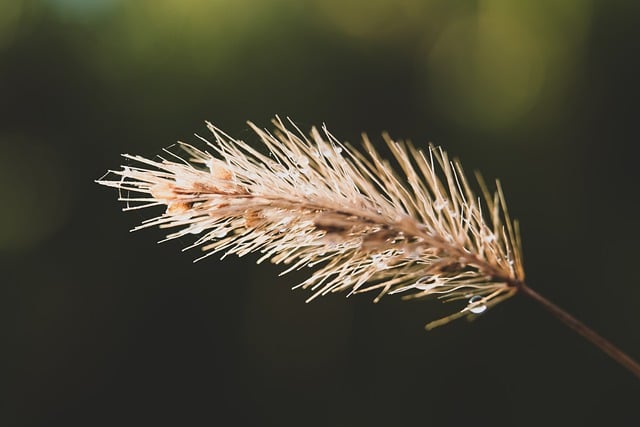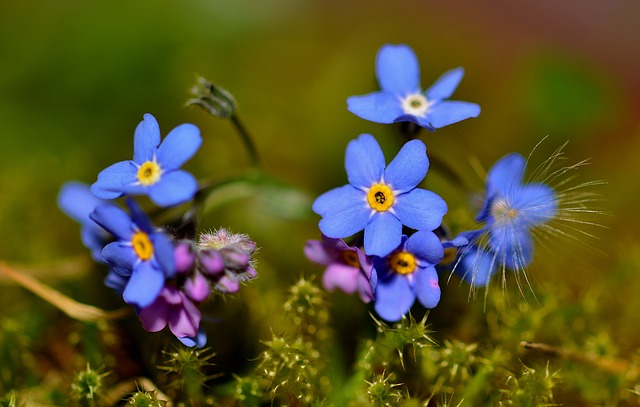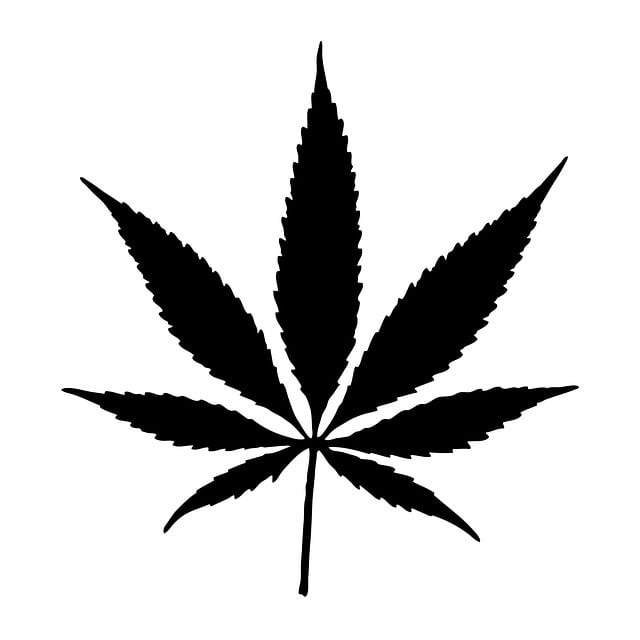As of the latest updates, THCA (Tetrahydrocannabinolic Acid), a non-psychoactive cannabinoid, is legally permissible in various UK countries under strict regulations. The legal threshold mandates that THCA products must contain less than 0.2% THC on a dry weight basis as per the Misuse of Drugs Regulations 2001 and Novel Food Regulation. The UK's regulatory framework, which is subject to both national and local laws, dictates that any commercial activity involving THCA flower must comply with the Home Office guidelines. Consumers are advised to purchase from reliable sources offering compliance certifications to avoid legal complications and ensure product safety. Research into THCA's potential health benefits, including its interactions with other cannabis compounds through the Entourage Effect, is ongoing within this legal framework. It's crucial for stakeholders to stay informed about the evolving UK regulations surrounding THCA products to navigate the landscape responsibly and legally.
Exploring the multifaceted nature of THCA flower within the context of UK regulations, this article sheds light on its legal status, potential side effects, and health implications. As a non-psychoactive cannabinoid with notable interactions in the entourage effect, understanding THCA’s role is crucial for consumers navigating its responsible use. We delve into the intricacies of THCA legality across UK counties, ensuring readers are well-informed about the dos and don’ts associated with this unique compound.
- Unraveling the Legal Status of THCA Flower in the UK
- THCA Flower: Potential Side Effects and Health Considerations
- Understanding Tetrahydrocannabinolic Acid (THCA): A Non-Psychoactive Cannabinoid
- The Entourage Effect: Interaction of THCA with Other Compounds in Cannabis
- Dosage and Safety: Navigating the Use of THCA Flower Responsibly
- Legal Implications and Consumer Responsibility for THCA Flower Possession and Use in UK Counties
Unraveling the Legal Status of THCA Flower in the UK

Navigating the legal landscape of THCA flower in the UK can be a complex matter, as it involves understanding both national and local regulations. Tetrahydrocannabinolic acid (THCA) is the raw, non-psychoactive precursor to Delta-9-THC, which becomes psychoactive when heated or decarboxylated. In the UK, the legal status of cannabis derivatives, including THCA, is governed by the Misuse of Drugs Act 1971 and subsequent Home Office guidance. As of the knowledge cutoff in 2023, THCA itself is not explicitly criminalized under this act; however, its legal status hinges on the specifics of how it’s derived from the cannabis plant and the intended use.
The Home Office has clarified that certain cannabis-related products containing cannabidiol (CBD) are legally permissible if they have been legally produced and possess a valid Novel Food authorization or Traditional Herbal Registration. However, the legality of THCA flower is less straightforward. It’s crucial for consumers and businesses to be aware that the possession and sale of cannabis plants and derived products, including THCA, are subject to strict controls. The UK’s Medicines and Healthcare products Regulatory Agency (MHRA) has taken a firm stance on this matter, indicating that any product with significant amounts of THCA would typically fall under medicines regulations, requiring proper authorization before being marketed or sold. Therefore, individuals looking to engage with THCA flower in the UK must stay informed about the evolving regulations and ensure compliance with local laws to avoid legal repercussions.
THCA Flower: Potential Side Effects and Health Considerations

THCA, or Tetrahydrocannabinolic Acid, is a non-psychoactive cannabinoid found in the Cannabis sativa plant that has garnered attention for its potential therapeutic properties. As interest in THCA grows, understanding its legal status and health considerations is paramount. In the UK, the legalities surrounding THCA flower are nuanced; it is legal if derived from hemp strains that contain no more than 0.2% THC on a dry weight basis, as per the Misuse of Drugs Regulations 2001. Consumers must navigate these regulations carefully to ensure compliance with the law.
When incorporating THCA flower into one’s health regimen, several side effects should be considered. Common reported side effects include dizziness, dry mouth, and reduced blood pressure. These effects are generally mild and temporary, often subsiding as the body adjusts to the compound. However, individuals with certain medical conditions or those taking prescription medications should exercise caution, as THCA may interact with these substances. It is also important for pregnant or breastfeeding women to avoid THCA due to insufficient research on its effects during these sensitive periods. As with any supplement or new health product, it is advisable to consult with a healthcare professional before use. Additionally, the potential side effects of THCA flower can vary based on dosage, method of consumption, and individual physiology, emphasizing the need for personalized guidance from a qualified medical advisor.
Understanding Tetrahydrocannabinolic Acid (THCA): A Non-Psychoactive Cannabinoid

Tetrahydrocannabinolic Acid (THCA) is a naturally occurring compound found in the cannabis plant, distinct from its more famous counterpart, delta-9-tetrahydrocannabinol (THC). Unlike THC, which is psychoactive and causes the ‘high’ commonly associated with cannabis use, THCA exists naturally in hemp and cannabis plants and does not induce psychoactive effects. This non-psychoactive property has led to increased interest in THCA, particularly within legal frameworks, including those in UK countries where hemp-derived products are permitted under the 2018 Farm Bill.
THCA is gaining attention for its potential therapeutic properties, which include anti-inflammatory, anti-nausea, and anti-emetic effects. These benefits have been studied both in vitro and in clinical trials, suggesting that THCA could play a significant role in various wellness regimens without the psychoactive side of cannabinoids. Its legality in UK countries allows researchers and consumers alike to explore its potential, contributing to a growing body of evidence on its efficacy. As such, THCA flower, which is rich in this cannabinoid, has become a subject of interest for those seeking the potential health benefits of cannabis without the mind-altering effects. Understanding the nuances of THCA’s legal status and its applications is crucial for anyone interested in exploring cannabinoids as part of their wellness routine, especially within the regulated context provided by UK legislation.
The Entourage Effect: Interaction of THCA with Other Compounds in Cannabis

Delta-9-tetrahydrocannabinolic acid (THCA) is one of the major cannabinoids found in the Cannabis sativa plant, and it’s worth noting its legal status in UK countries. In these regions, THCA itself is legal provided it is derived from hemp with a THC concentration of no more than 0.2% on a dry weight basis, as per the Misuse of Drugs Regulations of 2004. This legal distinction is crucial for consumers and producers alike, as it demarcates the permissible boundaries for products containing THCA.
The Entourage Effect refers to the synergistic interaction between THCA and other compounds present in cannabis, such as terpenes and flavonoids. These compounds work together to amplify the effects of each other, potentially offering a broader therapeutic or psychoactive profile than any single compound alone could provide. For instance, when THCA is heated, it decarboxylates into THC, which is psychoactive, but in its raw form, THCA exhibits distinct properties. The Entourage Effect implies that the side effects and benefits of THCA flower may be influenced by these interactions. In the context of cannabis research and therapeutic applications, understanding the Entourage Effect is essential for optimizing treatment outcomes and minimizing potential adverse reactions. This holistic approach to cannabinoid therapy could lead to more effective and tailored interventions for various conditions, with THCA’s legal status in UK countries facilitating such research within the regulatory framework established by law.
Dosage and Safety: Navigating the Use of THCA Flower Responsibly

The use of THCA (Tetrahydrocannabinolic Acid) flower, a non-psychoactive cannabinoid found in the hemp plant, has garnered attention for its potential health benefits. As interest in THCA flourishes, it’s imperative to approach its consumption responsibly, especially given the evolving legal landscape in the UK. THCA is considered legal in many UK countries when derived from hemp and contains less than 0.2% THC, its psychoactive counterpart. Understanding dosage and safety is crucial for users to harness the benefits of THCA without risking adverse effects.
Dosage plays a pivotal role in determining the efficacy and safety of THCA flower consumption. Users should start with a low dose, typically ranging from 5 to 10 mg, and gradually increase as needed, while closely monitoring their body’s response. The safety profile of THCA is generally favorable, but potential side effects can include drowsiness, dry mouth, and reduced blood pressure. It’s advisable to consult with a healthcare professional before incorporating THCA flower into one’s wellness regimen, particularly if the user has existing health conditions or takes other medications. Adhering to recommended dosages and being aware of individual sensitivities can help ensure a safe and positive experience with THCA products in countries where it is legal.
Legal Implications and Consumer Responsibility for THCA Flower Possession and Use in UK Counties

The legal status of THCA (Tetrahydrocannabinolic Acid) flower, a non-psychoactive cannabinoid found in hemp and cannabis plants, has been a subject of evolving legislation within UK counties. As of the knowledge cutoff date, products containing THCA are typically legal provided they meet the stringent regulations set forth by the UK’s Home Office. These regulations stipulate that products derived from hemp must contain less than 0.2% THC on a dry weight basis to be considered legal. Consumers and businesses handling THCA flower must adhere strictly to these guidelines to avoid legal implications. The Misuse of Drugs Act 1971, alongside the Novel Food Regulation, serves as the legislative framework governing such substances. It is imperative for consumers to source THCA products from reputable suppliers who can provide legal assurances and certifications confirming compliance with these regulations. This due diligence not only ensures legal standing but also safeguards consumer safety by preventing the consumption of products that may contain higher levels of THC, which could lead to legal repercussions or other issues. As the legal landscape for cannabinoids continues to develop, staying informed about the specific laws and regulations in each UK county is crucial for consumers and businesses alike. It is through responsible use and compliance with existing laws that the benefits and potential of THCA flower can be fully realized without falling foul of the law.
In conclusion, the emergence of THCA flower within the UK’s evolving cannabinoid landscape has sparked significant interest due to its non-psychoactive nature and potential therapeutic properties. As outlined in this article, understanding the legal status, potential side effects, and health considerations of THCA is paramount for consumers and regulators alike. It is clear that THCA’s legality across UK countries varies, necessitating careful attention to local laws. The entourage effect underscores the importance of considering THCA’s interaction with other cannabis compounds for a balanced experience. Consumers are encouraged to approach THCA flower use responsibly, mindful of dosage and safety guidelines to mitigate any adverse effects. It is essential for users to remain informed on the legal implications and exercise their responsibility diligently when considering THCA flower as part of their wellness routine. With a growing body of research and increasing regulatory clarity, the potential of THCA as a natural health supplement in the UK continues to unfold.
